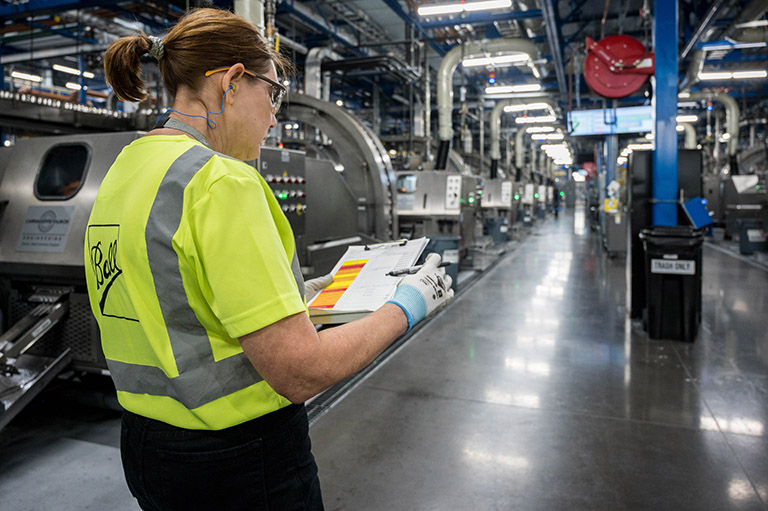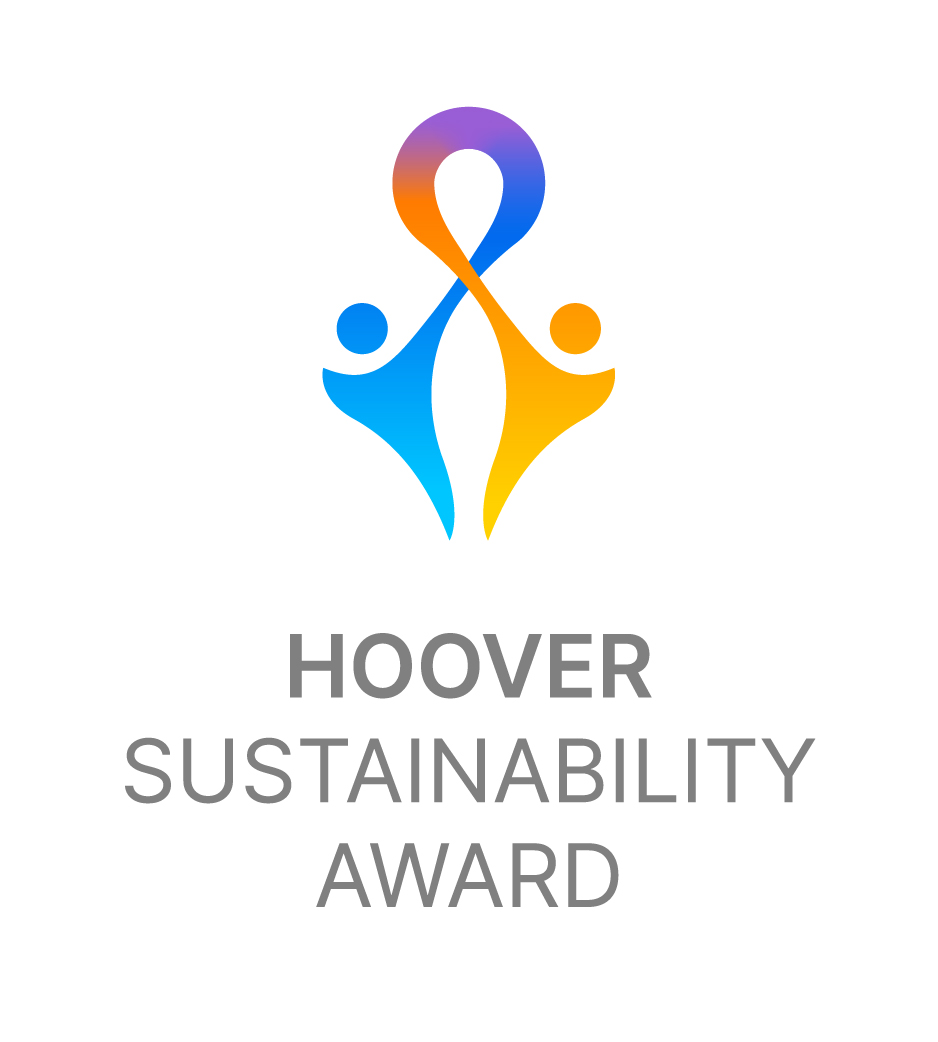
Sustainability Governance
Accountability for our sustainability performance is monitored at various levels of the organization. Sustainability oversight starts at the highest level of our company, the Board of Directors, and is overseen by the Nominating and Corporate Governance, Human Resources and Audit Committees. Each committee receives updates twice per year. Ball’s board committees are each chaired by a non-executive board director. The Nominating and Corporate Governance Committee is responsible for overseeing climate-related risks and opportunities, ESG governance and accountability, while the Audit Committee oversees sustainability and climate-related disclosures, as well as assurance of such data. The Human Resources Committee is responsible for the alignment of ESG strategy with compensation practices and human capital priorities. The committees’ scope is to ensure we add economic value to the business by fully integrating sustainability into our strategies and aligning ourselves with stakeholder expectations.
At the executive level, reporting to the Board, the ESG and Sustainability Council meets twice per year, involving the Chief Sustainability Officer, Ramon Arratia, the Executive Leadership Team, as well as Commercial, Investor Relations, Operations and Engineering teams. The Council performs and oversees various sustainability-related objectives: setting and adjusting Ball’s overall sustainability strategy; reviewing progress against long-term sustainability goals; discussing sustainability trends, risks, and opportunities; and oversight over sustainability reporting. In addition, the Council ensures Ball’s actions are in line with key stakeholder expectations and its sustainability strategy is integrated with its business strategy.
At the operational level, reporting to the Council, Ball’s Cross-Functional Working Groups meet regularly, bringing together functional topic owners and subject matter experts to embed ESG priorities and principles throughout Ball’s business and central functions, to ensure Ball meets its long-term goals.
- The Sustainability Accelerator Team focuses on accelerating progress against annual and long-term product stewardship goals (real circularity, climate leadership, material health, resource efficiency, responsible sourcing), reviews key challenges and discusses solutions to ensure all businesses and central functions stay on track
- The Market Influence Team reviews relevant policies and advocacy, initiates research, and fosters dialogue with NGO partners to help shape new and transform existing markets
- The Social Impact Team reviews progress against annual and long-term social impact goals, as well as fine-tunes priorities and KPIs
- The Governance Team ensures adequate ESG & Sustainability governance structure and accountability
- The Sustainability Disclosure Team monitors mandatory and voluntary disclosure requirements, develops Ball’s annual Combined Report and reviews ESG assessment results to identify corrective action

Risk Management
We systematically identify and assess risks in all of our businesses so we can develop management plans that encompass major risks, including supply chain, commodity and currency volatility, human capital, financial risk and legislative action. To remain a resilient business we also anticipate and mitigate sustainability-related risks. We identify and assess these risks so we can develop management plans to address them. Among the key risks we examine are those related to climate change, water scarcity, disruptions due to extreme weather events, human rights abuses and packaging waste regulations.

Ethics and Compliance
Our company culture has always been based on the highest level of integrity and ethical conduct. Integrity is one of Ball’s core values and most important cultural assets. We will not compromise our integrity or risk damage to our reputation for financial gain or for any other reason.
To ensure we act with integrity at all times, all Ball employees are required to understand and follow Ball’s corporate compliance policies and the Business Ethics Code of Conduct. In 2023, 84% of Ball employees are trained on business ethics through our annual training. Our extensive framework of policies and management systems is well established and continues to evolve as we face new challenges. For example, we established a new company-wide human rights policy in 2013 to ensure that we foster and maintain a responsible and safe work environment for our employees and in our supply chain.
Each year, all managers and other select employees are required to perform an electronic compliance verification for all business conduct (including applicable laws and regulations), anti-corruption and conflict of interest policies. We have a hotline for employees and external stakeholders to use to report policy violations confidentially and in their own language. No retaliatory action will be tolerated against anyone who comes forward to raise genuine concerns about possible violations.
The company has numerous other compliance and regulatory policies in place to ensure employees act in full accordance with appropriate laws and regulations such as child and forced labor, environmental, export and import compliance and foreign corrupt practices.
More information on Ball’s Corporate Governance, including the Business Ethics Code of Conduct, Board Committee charters and the Board of Directors Business Ethics Statement, can be found on our investors page.
Stakeholder Engagement
Engaging our stakeholders is essential to how we do business. By listening to their ideas and needs, we better understand their expectations and can identify emerging opportunities and challenges in our markets. In turn, stakeholders can deepen their understanding of Ball and how we can work together to create shared value.
We regularly engage various stakeholders such as customers, employees, investors, suppliers, trade associations, governmental representatives, regulatory authorities and nongovernmental organizations. Dialogue with stakeholders along our value chain—from material suppliers to recycling organizations—is particularly important to Ball. Because many of the sustainability challenges we encounter, such as water scarcity and packaging recycling, are too complex for one organization to tackle alone, we participate in several multi-stakeholder partnerships that allow us and others to bundle resources and expertise to develop effective solutions.
Approximately 500 stakeholders from around the world participated in our 2018 sustainability materiality survey.
We intend to continue bringing value beyond quality and price to customer relationships, and demonstrate how we can help our customers succeed. We aim to be the sustainable supplier of choice by responding to customers’ needs and doing our part in contributing to their sustainability goals.
Being close to our customers has long been part of “who we are” at Ball Corporation. In our packaging businesses, we know we must be fully aligned with our customers to continue our long track record of success.
KEY STAKEHOLDER INTERESTS
• Pricing
• Quality and food safety
• Packaging innovation
• Lightweighting
• Packaging recycling
• Product carbon footprints
• Life cycle assessments
• Filling line efficiencies
HELPING EACH OTHER
In our packaging businesses, we primarily engage with our customers through face-to-face meetings, often combined with plant visits. In our metal beverage packaging business, we service our customers’ filling lines at their request to ensure our cans run smoothly, which maximizes filling line efficiencies and reduces can spoilage. Our Customer Technical Service experts also provide training upon customer request to help minimize the possibility of filling and seaming problems.
Ball engages with mainstream investors and the socially responsible investment (SRI) community. Although mainly the SRI community asks for detailed information on our sustainability management and our performance, mainstream investors are becoming increasingly interested in Ball’s sustainability efforts. We aim to provide the most accurate and timely information to ensure that investors can make good investment decisions. Today, we contribute to several assessment initiatives by the SRI community. We seek to improve our ratings and rankings, and aim to align our sustainability management and reporting with their needs. An overview of some SRI ratings and rankings and how we were assessed can be found here.
From meetings to telephone interviews and answering questionnaires, we engage with investors in various ways.
KEY STAKEHOLDER INTERESTS
• Business development
• Growth opportunities
• Long-term strategy
• Risk management
• Business strategy and the role of sustainability
• Sustainability goals
• Innovation
• Geographic reach
To learn more about how we engage with employees, visit Talent Management.
KEY STAKEHOLDER INTERESTS
• Job security
• Pay and benefits
• Development opportunities
• Recognition
• Employee volunteering and giving
To learn more about how we engage with suppliers, visit Responsible Sourcing.
KEY STAKEHOLDER INTERESTS
• Fair deals
• Growth opportunities and innovation
• Packaging recycling
• Long-term relationships with Ball
• Information requests from our customers
• Life cycle assessment
In many countries, the packaging we produce is regulated. We monitor and participate in public policy discussions when appropriate to protect and enhance our business. We engage with political and regulatory stakeholders on multinational, national, state and regional levels. We invite officials to visit our plants to better understand our business and the economic impact we have in the communities.
We are involved in a range of professional organizations and trade associations to promote a healthy business climate and to stay informed on developments that may influence our businesses. Examples can be found below this table. In addition, our businesses and facilities are expected to join the appropriate local chambers of commerce, manufacturers associations and other interest groups to promote discussions with local decision makers on a variety of business matters that could affect our facilities.
KEY STAKEHOLDER INTERESTS
• Resource conservation
• Climate change
• Energy efficiency
• Food safety
• Sourcing
• Wages and benefits
• Skills
• Policy implementation
• Environmental, health and safety compliance
We work with NGOs, nonprofits and consumer organizations to share our position on various social and environmental matters and to seek feedback on concerns they may have about our activities. Meetings, surveys and specific consultations are the most common ways we engage with NGOs.
KEY STAKEHOLDER INTERESTS
• Funding
• Consumer protection
• Ethical sourcing
• Climate change
• Recycling and resource conservation
• Water management
• Voluntary support by employees
To learn more about how we engage with our communities, visit Community Ambassadors.
KEY STAKEHOLDERS INTERESTS
• Jobs in the community
• Funding for local projects
• Voluntary support by employees
• Environmental protection
Hoover Sustainability Award

Hoover Award
We use various tools to inform Ball’s 21,000 employees about our sustainability efforts, explain our company’s sustainability goals, highlight improvements, share best practices and generate new ideas. For example, the annual Hoover Sustainability Award, named after our former chief executive officer, considers the annual sustainability performance improvements of each Ball plant in eight categories. Alongside six operational sustainability metrics, aspects such as promoting local packaging recycling initiatives, Diversity and Inclusion and Community are also assessed. The most successful plant per division receives the award. This competition further increases our plants’ engagement in measuring, understanding and improving their sustainability performance.

Memberships
Ball is a member of various trade associations and organizations that strive to enhance the sustainability performance of companies and packaging, as well as work collaboratively throughout the value chain to drive circularity and decarbonization. Examples include:
- International Organization of Aluminium Aerosol Container Manufacturers (AEROBAL)
- Aluminium Stewardship Initiative (ASI)
- Associação Brasileira de Produtores de lata de alumínio (ABRALATAS)
- British Aerosol Manufacturers’ Association (BAMA)
- The Business Roundtable
- CERES
- Consumer Specialty Products Association (CSPA)
- European Institute for Packaging and the Environment (EUROPEN)
- Every Can Counts (ECC)
- The First Movers Coalition (FMC)
- GreenBiz Executive Network
- The Industry Council for Research on Packaging and the Environment (INCPEN)
- Metal Packaging Europe (MPE)
- Metal Packaging Manufacturers Association (MPMA)
- The Mission Possible Partnership (MPP)
- The National Association of Manufacturers (NAM)
- Supplier Ethical Data Exchange (SEDEX)
- Renewable Energy Buyers Alliance (REBA)
- RMI Horizon Zero
- The Recycling Partnership (TRP)